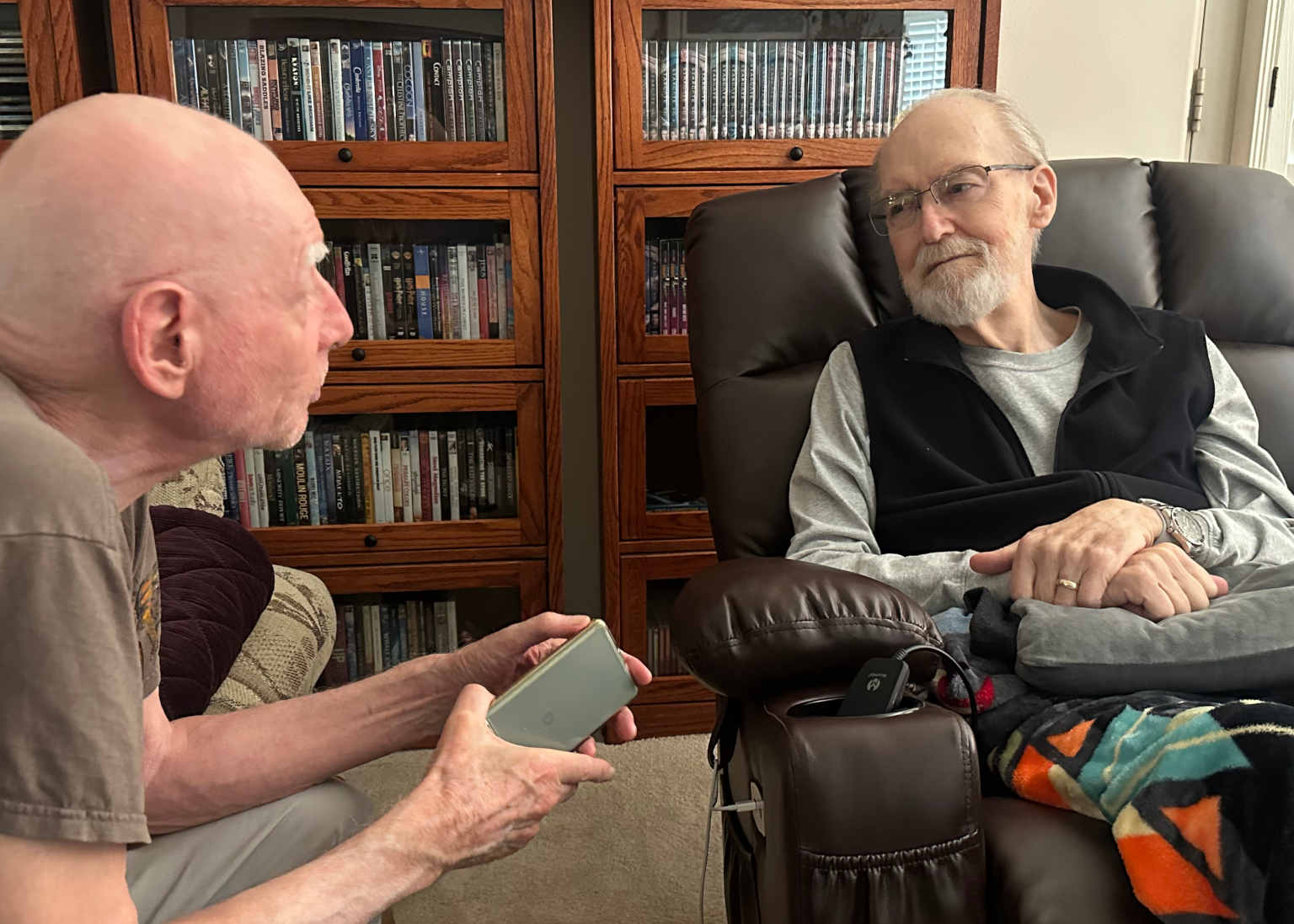Why It’s Important to Be Fully Present in Your Relationships

Podcast: Download
Subscribe: Apple Podcasts | RSS
PHIL: It’s been a week where we seem to have had frequent calls for help. Maude described herself as feeling interrupted for a second when asked, and then just thought, here’s an opportunity of service, and switched away from the put-upon sensation that she had very quickly.
What I got from that is that you’re in one reality, then reality changes and the question is, how long are you going to be upset at that change before you go “Okay, this is how it is.” And when you can go “Oh, look, a change has happened; this is how it is,” then you totally skip over the regret, the loss, the irritation.
This is a beneficial attitude to have in a relationship because the other person is constantly changing: they’re tired, they’re annoying, they need help with something, they’re off doing something, they’re underfoot. Even good changes are a form of disruption.
So this is about being present, that holy grail of modern-day self-care. It’s about accepting how the other person is right now. And—holy moly—this looks like total acceptance, a central theme of ours. To clarify, this is not carte blanche for every form of behavior; we are talking about relationships with shared values where you trust the other person.
To even see how the other person is right now, you need to pay attention to them. Attention is like a flashlight, only illuminating one thing at a time, and your own feelings and reactions are likely to capture your attention instead. Not that you should ignore them; just don’t get captivated by them. By setting them aside for the moment, you create a gap between action and reaction and avoid impulsive responses.
You create a stillness within yourself that can hear, see, be open to the other person, the situation, or whatever has interrupted your life, and the shock of change is more easily assimilated.Create a stillness within yourself that is open to the other person #relationships #quote Share on X
MAUDE: Every relationship feels entirely different when you are truly present in it. This difference can be recognized by both parties, whether consciously or unconsciously. When you have the experience of each person being present, many of the fears that people bring to relationships dissolve.
The sense of having to be on your guard dissipates with mutual presence, as well as many misunderstandings, assumptions, and much of the fear of abandonment. Worries about the past as well as projections of the future do not live in this kind of shared presence.
What are the qualities and behaviors of this way of being present with each other?
A quality that rarely gets spoken of, and yet one that is felt keenly when it is not there, is being available; available with your whole person. This quality involves listening with interest and the intention to understand, as well as balancing that listening with sharing about yourself and your feelings. It calls for making the time to be with the relationship in this way.
In order for this to be possible, both of you must be aware of and respect the other person’s needs, rhythms, and responsibilities, and at the same time find a path to create the time to be with the relationship in this way.
When you are present, you are aware of the sense of connection with each other, and that sense is pervaded by the knowledge that you are on the same side. You both want the best for each other and want to support one another to be your best. This underlying foundation creates strong bonds and an assurance that enables you to bridge any gaps you might sense in the connection.
Translating these qualities into actions involves learning how to do it, and the intention to be present in this way with each other. No one is perfect, and no one is successful all the time in these intentions. It is helpful to gently remind each other when you feel this kind of awareness lapsing, or unease growing due to a lack of the sense of the other’s presence. Never discuss this with an attitude of blame or accusation. Rather, share your own feelings of any distance you sense from the lack of being present together.
It is so easy to balk at interruptions or unexpected changes in what you had planned to do and what actually happens. I have been pulled out of the now, time and time again, to bemoan or resent what is happening as disruptive. The more you can roll with this basic aspect of life in the present, the more at peace you will be in your relationships and in your own inner life.
Photo credit: Maude Mayes
Photo note: Phil and John in discussion
Read what some other writers have to say on this topic.
Get our free weekly newsletter about how to have a harmonious relationship.
“So this is about being present, that holy grail of modern-day self-care.” So well put. Thanks for a great post!
Jeanine
Thanks! I’m fascinated that there is a focus on liberating the self from the strictures of family and society, yet no one points out that the end result would make you an uncaring sociopath.
Phil
Thank you for these insights. It’s all too easy to take our loved ones for granted and hold on to petty resentments, which cloud the joy that we experience when love is appreciated.
love
Esther
It is indeed so easy to fall into patterns of neglect or taking for granted. Lets all try to live in the present and appreciate one another – our relationships are the treasures of our lives!
love
Maude
Very sweet.
thanks
Karen
Thank you. We are so glad you found value in this post.
love
Maude
Thank you, well done.
Foster
Thank you Foster! Glad you found this post useful.
love
Maude